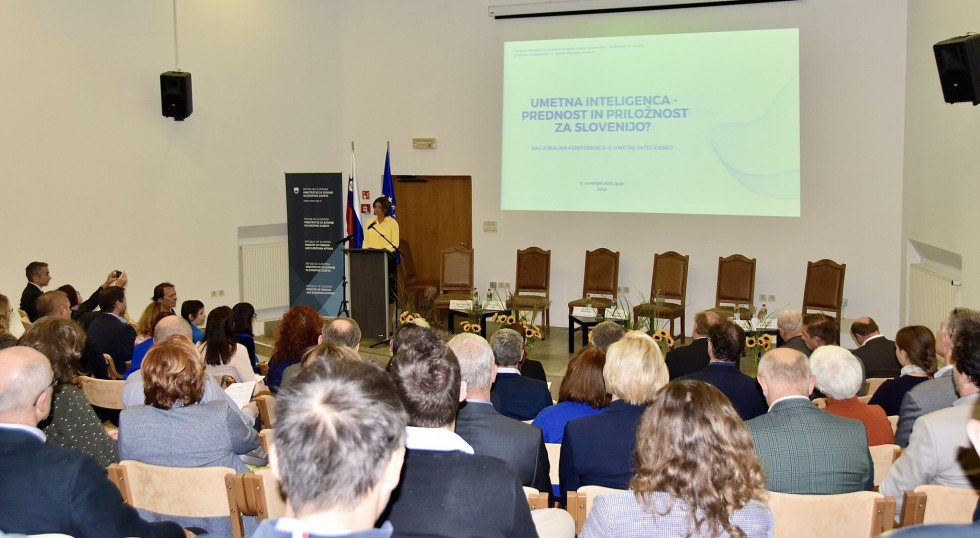Minister Fajon: Let's make artificial intelligence a successful brand for Slovenia

Minister Fajon: Let's make artificial intelligence a successful brand for Slovenia | Author Ministrstvo za zunanje in evropske zadeve
"Artificial intelligence has a long tradition in Slovenia, which is highly recognised worldwide. However, this applies mainly to the research and academic spheres. In business and even more so in public administration, we can only speak of exceptions," said Minister Fajon. She added that the purpose of the first national conference is to take stock of the level of expertise in Slovenia in all segments, to establish good cooperation between the stakeholders and to launch an open debate on how to ensure the necessary conditions to promote research, development and use of these technologies. Artificial intelligence is a comparative advantage and an opportunity for Slovenia in the global international environment.
"It is up to all of us to work together to make artificial intelligence a successful brand for Slovenia," said Minister Fajon, listing Slovenia's major international achievements. These include the first International Research Centre on Artificial Intelligence (IRCAI) and the OECD AI Policy Observatory. Slovenia also plays an active role within the Council of Europe and the United Nations, where AI is used as a tool to promote international peace.
Minister Fajon stressed that technological development cannot be stopped; nevertheless, it is important to be aware, in good time, of the challenges it brings. "These challenges are related to privacy, security and ethics. Public trust is essential." Minister Fajon concluded her address with three calls: to strengthen cooperation and exchange between research, academia, business and public administration, to introduce changes in education and employment systems, and to actively inform the public.
This was followed by a panel on the trends and challenges of AI in research. The participants agreed that supporting further research and innovation is crucial. It is important to bring all stakeholders together and educate and raise awareness. The enormous potential of AI is already visible in the economy, as it contributes to the development of solutions and products, competition analysis and data sharing, and will also contribute to higher GDP growth in the future.
At the conference’s closing panel, State Secretary Štucin stressed that the main tasks of diplomacy are to promote the achievements of Slovenian scientists in the field of AI within international organisations such as the UN Security Council, to open up avenues abroad and to provide assistance in seeking partners. Slovenia is also actively engaged in the field of AI regulation at the Council of Europe and the EU.
The conference was organised by the Ministry of Foreign and European Affairs in cooperation with the Ministry of Digital Transformation, the Ministry of Defence and the Ministry of Higher Education, Science and Innovation, the Chamber of Commerce and Industry of Slovenia and the best and internationally renowned researchers in this field from Slovenia.
